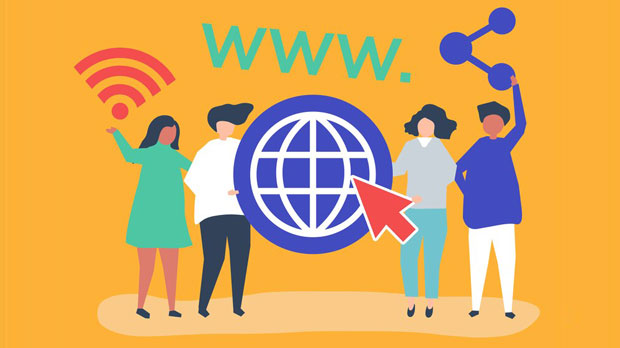In today’s digital landscape, privacy protection has become more critical than ever. As users share an increasing amount of personal and sensitive data online, methods like HTTP, HTTPS, and residential proxy Networks play a significant role in safeguarding privacy. These methods ensure secure data transmission, enhance anonymity, and protect user information from unwanted surveillance or hacking attempts. In this article, we will explore the roles and differences of these privacy protection techniques, helping customers understand how each method functions and how to use them effectively to ensure better privacy in their digital activities. What is HTTP and Its Limitations in Privacy ProtectionHyperText Transfer Protocol (HTTP) is the foundational protocol used for transmitting data across the web. HTTP allows browsers and servers to communicate by sending requests and receiving responses. While HTTP facilitates data transfer, it does not offer encryption, making the information vulnerable to interception by third parties. Since HTTP does not encrypt data, sensitive details such as passwords, personal messages, or financial information can be exposed to hackers or malicious actors.From a privacy perspective, HTTP presents several challenges. Data transmitted over HTTP is visible in plain text, which means that anyone monitoring the traffic can view the information being sent. This makes HTTP inadequate for online transactions or any activity requiring confidential data sharing. While it is still commonly used for browsing non-sensitive content, HTTP is far from suitable when it comes to ensuring privacy and security in today’s internet environment.HTTPS: The Secure Version of HTTPTo address the privacy issues inherent in HTTP, HTTPS (HyperText Transfer Protocol Secure) was introduced. HTTPS integrates HTTP with an additional layer of security, the SSL/TLS (Secure Sockets Layer/Transport Layer Security) protocol. The primary advantage of HTTPS over HTTP is that it encrypts the data transmitted between the user’s browser and the web server, making it difficult for third parties to intercept or modify the information.When you visit a website with HTTPS, your browser establishes a secure connection with the server, ensuring that all data exchanged is encrypted. This includes sensitive information like login credentials, credit card numbers, and personal details, which are protected from prying eyes. HTTPS has become the standard for websites that handle user information, especially for e-commerce platforms, financial institutions, and any service requiring private data exchange.In terms of privacy protection, HTTPS offers several advantages:1. Encryption: Encrypts data to prevent unauthorized access.2. Data Integrity: Ensures that the data transmitted cannot be altered without detection.3. Authentication: Verifies the identity of the website, preventing man-in-the-middle attacks.However, while HTTPS is an essential tool for securing online communication, it does not completely guarantee anonymity or protect against tracking methods such as cookies or IP-based identification. what is a residential proxy Network?A Residential Proxy Network refers to a type of proxy server that uses real, residential IP addresses to route internet traffic. These proxies are highly effective in ensuring user privacy and anonymity online. By using residential IPs instead of data center IPs, users are less likely to be detected or blocked by websites, which often flag and block traffic from known data center IPs. residential proxies are particularly useful for those looking to mask their real IP address, making it harder for websites to track or identify their location or activities. When a user connects through a residential proxy, the website they visit sees the proxy’s IP address rather than the user’s actual IP address. This provides a level of anonymity, which is especially important for online activities such as web scraping, accessing geo-restricted content, or avoiding targeted advertising.For privacy protection, residential proxy networks offer the following benefits:1. Anonymity: Masks the user’s real IP address, providing a higher degree of anonymity.2. Bypass Geo-restrictions: Allows users to access content restricted to certain geographic locations by routing traffic through proxies in those regions.3. Enhanced Security: By hiding the real IP address, residential proxies can help protect against cyber-attacks, including DDoS (Distributed Denial of Service) attacks and other forms of hacking.Despite the significant privacy benefits, residential proxies come with some considerations. They are often slower than data center proxies due to the additional layer of routing through real residential networks. Moreover, the use of residential proxies may raise legal and ethical concerns depending on how they are used.Comparing HTTP, HTTPS, and Residential Proxy NetworksEach privacy protection method has its own strengths and weaknesses, and understanding the differences is crucial for selecting the best option depending on the situation.1. HTTP: While HTTP is fast and efficient for transferring non-sensitive information, it lacks encryption, making it unsuitable for tasks involving private data. It’s an outdated protocol that offers minimal privacy protection and should be avoided when security is a priority.2. HTTPS: HTTPS addresses the limitations of HTTP by adding encryption and security features. It is the standard for any secure online interaction, particularly for transactions or exchanging sensitive information. However, while HTTPS protects data in transit, it does not fully prevent websites from tracking user activities or profiling based on browsing history and behavior.3. Residential Proxy Networks: Residential proxies take privacy a step further by offering anonymity and security beyond encryption. They can mask your real IP address, bypass geographic restrictions, and make it harder for websites and advertisers to track your online behavior. However, the use of proxies might raise ethical concerns, and they are not foolproof in terms of complete anonymity or security.Choosing the Right Privacy Protection MethodWhen selecting a privacy protection method, it’s essential to consider the specific needs of the user:- For secure transactions and private browsing: HTTPS is the most reliable choice, offering encryption and protection for sensitive data.- For complete anonymity and avoiding tracking: Residential Proxy Networks provide a higher level of privacy by masking your real IP address and hiding your online footprint.- For non-sensitive browsing: HTTP may suffice, though it is always better to choose HTTPS to ensure security even for routine activities.ConclusionIn summary, HTTP, HTTPS, and Residential Proxy Networks each serve a unique purpose when it comes to privacy protection. HTTP, while still in use, offers little in terms of privacy. HTTPS enhances data security by encrypting communications, but it doesn’t offer full anonymity. Residential Proxy Networks provide another layer of protection by masking IP addresses, but they come with their own set of challenges and considerations. By understanding these methods, users can make informed decisions on how to best protect their online privacy, whether for personal use, business activities, or navigating the increasingly complex digital world.
Aug 19, 2025



































































